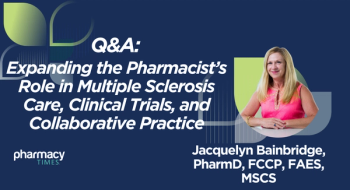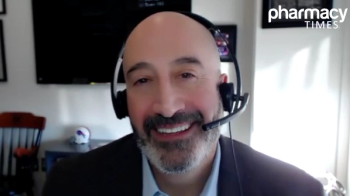
Student Café: COVID-19 Safety Precautions With Pharmacy Work
Students at the University of the Sciences Philadelphia College of Pharmacy answered the questions “Are you able to work hands-on in any capacity? If so, what safety measures are being taken?” in interviews with Pharmacy TimesTM.
Students at the University of the Sciences Philadelphia College of Pharmacy—Julia James, Janin Amin, Wictor Pac, and Paige Jacobs—answered the questions “Are you able to work hands-on in any capacity? If so, what safety measures are being taken?” in interviews with Pharmacy TimesTM. This video is the second in this series for Pharmacy TimesTM Student Café.
RELATED VIDEO
- Student Café: Impact of COVID-19 on Pharmacy Education
This is a partial transcript. View the video for the students' full responses.
Julia James: I work as a pharmacy intern in an independent pharmacy chain in Philadelphia. … We're required to wear the face masks. Patients are required to wear face masks. At the beginning, we were having patients form a line outside, and we had little hash marks on the ground. We would only let them in at the front door. Now that things have you know settled down a little bit, we're letting 1 person come in the store [at a time].
Janan Amin: At my pharmacy we have the plexiglass that's in between [patients and staff]. We try to limit the patients coming for pickup to only 1 register. We have a table separating, so that way they're a little far away. … We're always wearing masks, and sometimes gloves. It can get a little hard if you're trying to work really fast, and it's really busy. My hands are really small, but the gloves are really big. We also try to wipe down the area every hour.
Wictor Pac: I work at Penn Presbyterian Medical Center as a pharmacy intern and all the staff, no matter what department you're in, you are supposed to wear a face mask and have your temperature taken before you enter the building. However, as a pharmacy intern, I also enter the patient's room to drop off their medications, and I either wear face goggles or a face shield to prevent any [risk] to myself.
Paige Jacobs: For [one] rotation, we had the opportunity to take medication histories with someone in our homes, or if we wanted to call them, just for the practice. We didn’t go back to our sites. We were sent extra materials, assignments to do, [such as] reflective writing, and things like that. At Penn Vet, there are more precautions being taken. They had us bring in an extra change of clothes, so that when we get there, we get changed out of the clothes we walked in [wearing] and into fresh the clothes.
Newsletter
Stay informed on drug updates, treatment guidelines, and pharmacy practice trends—subscribe to Pharmacy Times for weekly clinical insights.


























